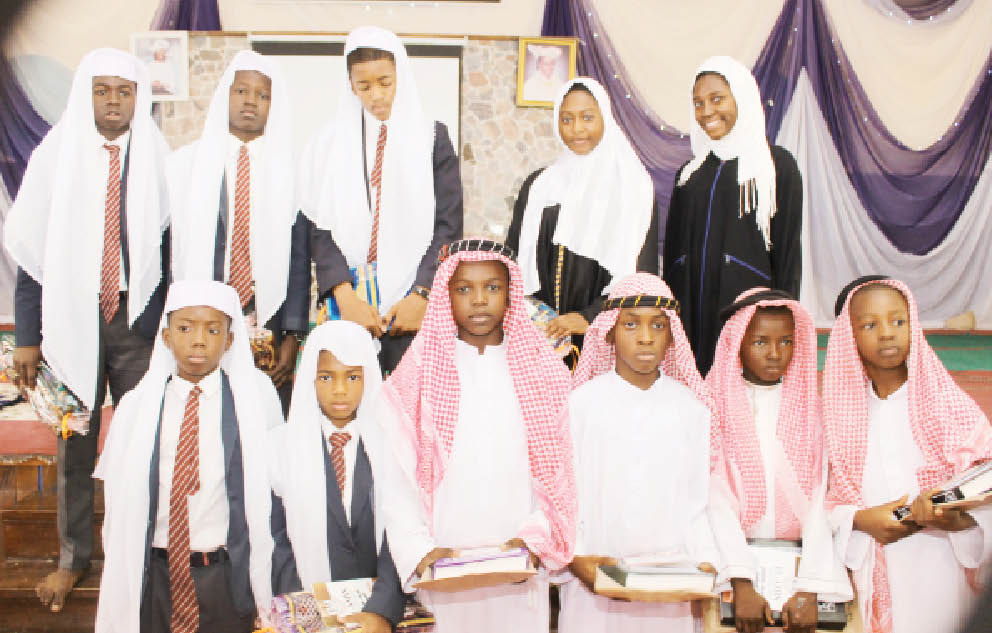El-Amin International School, Minna, Niger State, has been running Islamiyya classes for Muslim students to develop and instill positive values in them, produce knowledgeable and religious graduates as well as God-fearing communities.
The Director, Mohammed Babangida, said during their stay as boarding students, all Muslim students are required to attend Islamiyya lessons three times a week for two hours each and that qualified teachers were recruited to conduct the programme.
The students are divided into three groups based on their ability – advanced, intermediate and beginner classes – and girls are separated from boys as well, he explained, adding that students moved from one level to another up to graduation stage.
“This confirms that the child has gone through memorization of the Qur’an, has deep knowledge of Islamic history and the teachings of the prophet (pbuh). This is the point where we celebrate them,” he said.
Similarly, the director said there is a Christian religion programme which takes a different dimension.
The principal, Mr Nkama Vincent, said the classes, which are under the care of seven qualified Islamic education teachers, enable students to effectively learn the Qur’an and Qur’anic recitation with proper ‘Tajweed’ and ‘Tarteel’ (in proper order).
He said the programme was initiated by the school’s founder, Hajiya Maryam Babangida, to instill Islamic values in students.
In addition to the Qur’an, the students also learnt the Hadith, both as primary source of teaching and means of instruction for Muslims to adopt morally upright character, he stated.
The principal said the school is a welcoming home that provided an attractive environment with conditions for healthy living and learning; promoting cultural and traditional values whilst developing good character and moral values. The school encourages students to uphold the tenets of their religion.
The principal said the programme became necessary because Islamic Religious Knowledge (IRK), as a subject of study, didn’t address all the important topics needed by the students which include Qur’anic recitation and memorisation.
Islamiyya classes are conducted weekly and the students are categorised according to their abilities to extensively study and memorise the Holy Qur’an. Students that perform well at the end of the term are promoted to the next class.
The school also organizes ‘Walimah’ (graduation) ceremony for students who have successfully memorised the Qur’an.
Walimah, according to the principal, is conducted at the end of every first and second term, during which prizes and certificates were given to deserving graduands in the presence of external assessors and invited dignitaries, parents and teachers.
During the previous Walimah, a total of 12 graduands received certificates and prizes after successfully memorizing chapters of the Qur’an. They were Salisu Mohammed, Ahmed Musa Ibeto, Abubakar Zainab Dada, Mas’ud Aliyu, Tafida Abdulkadir and Awwal Mohammed Zayyad.
Others were Dhako Salamatu, Erena Maryam, Adam Nmaa, Awwal Muhammad Hamisu, Muhammad Makusidi and Abdullahi Idris Jiya.
Mr. Vincent explained that since parents and educators want students to learn religious values, the school would place premium on religious education, in particular the Islamiyya classes.

 Join Daily Trust WhatsApp Community For Quick Access To News and Happenings Around You.
Join Daily Trust WhatsApp Community For Quick Access To News and Happenings Around You.


